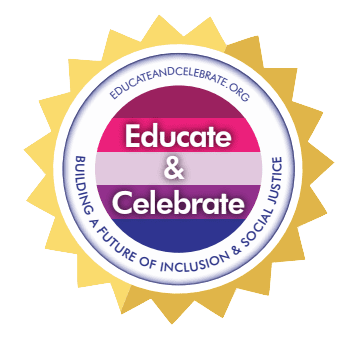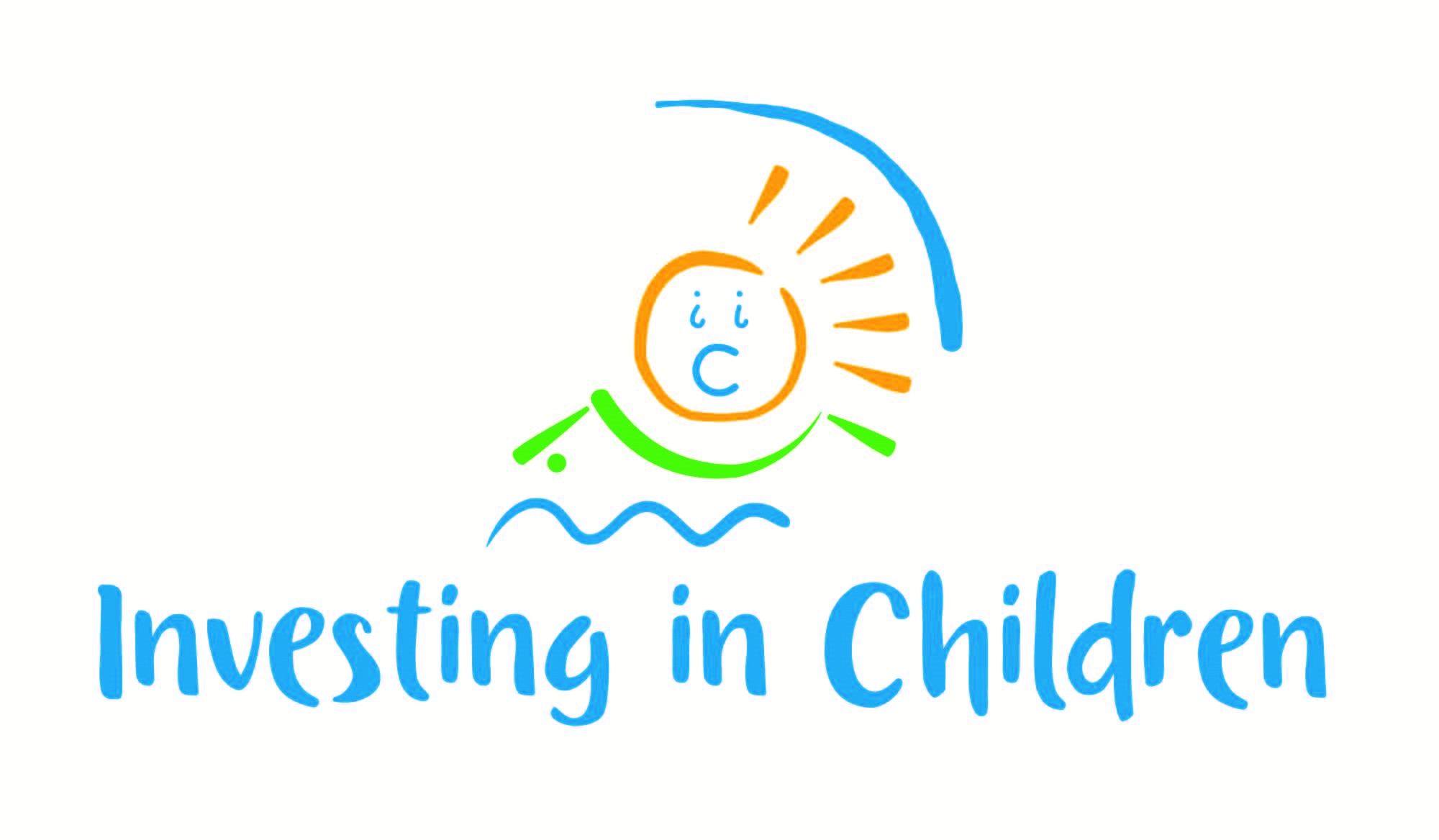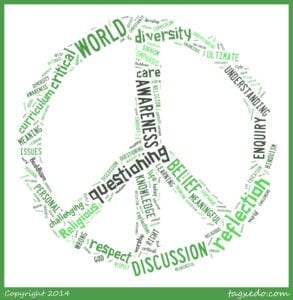
Rationale and Importance
“The ability to understand the faith or belief of individuals and communities, and how these may shape their culture and behaviour, is an invaluable asset for children in modern day Britain. Explaining religious and non-religious worldviews in an academic way allows young people to engage with the complexities of belief, avoid stereotyping and contribute to an informed debate”
– Why RE Matters -The RE Council
Religious Instruction’. RE is now a different subject – it is open, broad and explores a range of religious and non-religious world views. It is an academic subject
In this section of the website, you will find information about our approach to teaching Religious Education (RE) at Esh Winning Primary School.
- The Intent provides information on the relevance of RE and why we teach RE in this way at Esh Winning Primary School.
- The Implementation of RE outlines how teachers at Esh Winning Primary School teach RE across school from Nursery to Year 6.
- The Impact details the evidence collected to ensure the intent is realised and the implementation is successful across school.
- The Progression of RE outlines what progression looks like across the school.
- The Useful Subject Information section provides further information on the opportunities there are to engage with and deepen learning in RE.
NATRE
Religious Education is an academically rigorous subject which makes a distinctive contribution to pupils’ overall knowledge. Religious Education contributes dynamically to pupils’ education in schools by provoking challenging questions about meaning and purpose in life, beliefs about God, ultimate reality, issues of right and wrong and what it means to be human. In RE pupils learn about religious and non-religious worldviews in order to discover, explore and consider different answers to these questions. They learn to interpret, analyse, evaluate and critically respond to the claims that religious and non-religious worldviews make. Pupils learn to express their insights and to agree or disagree respectfully. (RE) enables pupils to appreciate that worldviews are complex, diverse and plural and have influence on individuals, communities, societies and cultures.
Religious Education at Esh Winning Primary School; ensures that every child has the ability to explore their own faith and to respect other world religions within a supportive and non-judgmental environment. We encourage children to develop their own sense of belief, we support their enquiring minds to learn make connections between religions and the impact that they have upon themselves. Children are encouraged to ask questions about the ‘big things’ in their own lives and those of others. They reflect on how this impacts on them as a person, accepting differences and similarities, helping them to grow as an individual but also a member of our school and world community. Children develop their wisdom through a range of creative teaching styles and real-life experiences, the children’s interests are at the heart of all that we do. Learning in R.E. is categorised into three elements: Knowledge and Understanding, Critical Thinking and Personal Reflection. The elements are interlinked and enable children to build their religious literacy. Children develop knowledge and understanding of a range of worldviews, enabling pupils to appreciate that they are complex, diverse and plural and have influence on individuals, communities, societies and cultures. They learn to interpret, analyse, evaluate and critically respond to claims that both worldviews make. Personal reflection encourages children to examine their own beliefs (whether they are religious or not), ideas, feelings, experiences and values in light of what they learn. As well as children developing their own sense of identity and belonging, RE is vital in actively promoting mutual respect and tolerance of others’ faiths and beliefs, a fundamental British value. The curriculum contains a strong focus on enquiry and reflective practice, caring for others and developing tolerance, acceptance, and the skills to discuss the place of religion in a multi-secular society. Those children with particular needs, including SEND, are supported appropriately allowing them to be successful. As well as children developing their own sense of identity and belonging, RE is vital in actively promoting mutual respect and tolerance of others’ faiths and beliefs, a fundamental British value. The R.E. curriculum aims to ensure that pupils: Intent Linked to our School Values Respect: Children will learn how people from different religious and non-religious groups care for each other and the environment. The teaching of R.E. encourages pupils to develop positive attitudes to their own and others’ beliefs, ideas, experiences, feelings and values. Resilience: In R.E., enquiry-based learning is used to help children deepen and broaden their understanding through increasingly complex enquiries. This approach actively engages pupils in their learning and develops perseverance and resilience during the process. Happiness: Through Religious Education, we want to ensure that children are happy when learning by providing opportunities for children to listen to and then explore stories through play and drama. Learning: At Esh Winning Primary School we are committed to ensuring that all children will have access to an exciting, appropriate and inspiring curriculum that will support their progress and achievement. Children will learn about the religious and non-religious landscape across the region. Honesty In R.E. much of the learning is gained through investigation and discussion. Children will work together as a whole class though activities such as circle time, in small groups for investigation and drama, as well as paired work where ideas are shared and learning is consolidated through ‘partner talk’. Working well together and being honest but respectful, is a skill in which our children thrive as it is developed in all areas of the curriculum and school environment. At Esh Winning Primary School, we offer a curriculum set through the Durham Agreed Syllabus 2020 which is broad and balanced, and which builds on the knowledge, understanding and skills of all children. All of our learning is taught using scaffolding and modelling so that all children feel secure and cement the foundations of their learning step by step. Pupils will study Christianity in both Key Stage 1 and Key Stage 2, as well as Buddhism in Key Stage 1 and Hinduism and Judaism in Key Stage 2, with a small special study of Islam. The curriculum also includes the study of other religions and worldviews taught through thematic units and units on religious diversity. R.E. in EYFS is taught as part of whole class topics or themes. All year groups focus on a different question around Christmas and Easter to allow for progress. This is a whole school approach to understanding the Christian festival of Christmas and Easter. R.E. is generally delivered in a weekly timetabled lesson, however, depending on the topic or the type of teaching and learning activity, R.E. will sometimes be taught over an afternoon or entire day, particularly if the children are visiting a place of religious significance. The R.E. curriculum is planned carefully to ensure each child’s progression throughout their time at school. Children’s knowledge and understanding of concepts in R.E. will become deeper, more complex and more comprehensive. They will develop their critical thinking through the skills of analysis and evaluation in relation to questions raised by their learning in R.E.. Personal reflection is developed and deepened through opportunities for children to reflect on their own experiences, feelings, beliefs, values and ideas. The R.E. curriculum is enriched through visits to local places of religious significance. Churches in the village of Esh Winning are regularly visited by our children, and we encourage visitors from faith leaders to our school. In year 3, children learn about Christian churches from different denominations and are able to visit (in person or virtually) to see them first hand. Durham Cathedral is an important place of religious significance and will be visited by both year 2 and year 4 children to enhance their study of both the history of the cathedral as well as the modern-day worship there. Children enjoy communication from local temples, mosques and synagogues to gain further understanding of the beliefs and practices in Hinduism, Buddhism, Judaism and Islam. Children will be introduced to subject specific vocabulary. The vocabulary taught will become wider and more abstract. It is used during teaching and it is expected to be used accurately in the children’s writing as well as oral discussions. Cultural Capital is the accumulation of knowledge, behaviours, skills and experiences that gives us the confidence to be able to talk, communicate, progress and take a full part in our community and wider world. At Esh Winning Primary school, we promote equality through our commitment to developing cultural capital for all our children. In R.E., children will learn about diverse religious and non-religious worldviews. The R.E. curriculum is designed to help children deal with controversial issues, manage strongly held differences of belief and challenge stereotypes and prejudice. Children will develop mutual respect and tolerance of others’ faiths and beliefs. In order to achieve this, children will experience: Our Children will leave Esh Winning Primary School ready for the next stage in their learning at secondary school. The curriculum will have provided a range of knowledge and skills to support them in their future endeavours. Our Pupils will be able to work collaboratively with their peers and independently as inquisitive learners who are motivated to excel and who have a thirst for learning. Our pupils will have a strong desire to embrace challenge and to be resilient learners. Our curriculum will also enable our pupils to become good citizens and demonstrate an appreciation for others. Our pupils will be respectful and will show tolerance and acceptance to those from different faiths and backgrounds. Children across both key stages enjoy their learning in R.E. They have a keen interest in the history and diversity of religious education and are becoming increasingly confident in critically responding to the material they have learnt as well as offering personal reflection. Children talk about the worldviews they have studied with enthusiasm and have a clear understanding of the knowledge they have gained. Due to a variety of teaching and learning activities, many children find this subject fascinating and have a high recall of facts, stories and practices they have been taught. As much of the teaching of R.E. is based on the cycle of enquiry, the children are also becoming more proficient in giving opinions and supporting their ideas with reason, as well as responding to the views of others with respect. Although the children are taught about the fundamental ideas and beliefs of religious and non-religious worldviews, they are also aware of the impact they have on our everyday lives. The children learn about the charitable work that many religious and non-religious groups organise, including humanitarian aid given to people around the world who need help due to issues of war. The children also engage in these charitable events by donating food, essential items or money at various points across the year. In RE, children have been learning about Buddhism. They have learned the real name of Buddha , where he came from ,the four sights and have reflected on how they can show kindness and love to mankind. They reflected on how Buddha became enlightened under a bodhi tree and decided to try out meditating for themselves . They meditated to become enlightened on how to show kindness within our school. Year 2's created Christingles to support their enquiry question: How and why is light important at Christmas? Year 2 visited Durham Cathedral to support their enquiry question : What can we learn from the story of St Cuthbert? KS2 have participated in an Interfaith afternoon . It was to provide them with the opportunity to reflect on lockdown, which was very difficult for some. Children were unable to meet up with friends, see family members, travel or take part in their favourite pastimes. They experienced a sense of loss and deprivation. People of all faiths and none were forced to become more resilient and mindful of others. The children worked with leaders from the Hindu, Christian, Jewish and Islamic faith groups. They were encouraged to reflect on what is important when we miss things from our everyday lives. It was linked with periods of fasting/abstinence and they were given the opportunity to ask questions to the faith leaders. The children developed an understanding of similarities and differences within and between religious and non-religious worldviews Children designed their own personal three-point action plan through self-reflection to help them consider the needs of others. Then used them to create a kindness tree for display in year 3/4 corridor. Year 6 answered their enquiry question by creating stain glass windows to tell the different interpretations of the story about the birth of Jesus. What do the gospels tell us about the birth of Jesus? Year 1 were answering their enquiry question : What is the Easter story? The Children tasted hot cross buns and Easter eggs, they then looked at the real meaning of Easter. Inter Faith Week RE Big Questions: A journey through Christianity The Easter Assembly PowerPoint SMSC in Religious Education The Cultural Child RE in Esh Winning Primary school supports the cultural development of a child by exposing them to a wide range of religions, cultures, and practices. Children will learn about a range of celebrations and explore traditions from different cultures. The Social Child RE in Esh Winning Primary school supports social development by providing children with the opportunity to learn about the world around them, by learning about the beliefs and practices of other religions and faiths. The Moral Child RE in Esh Winning Primary school supports moral development by encouraging children to learn about what is right and wrong. Discussing the morality of different stories and why they are an important part of different religions and cultures. The Spiritual Child RE in Esh Winning Primary school supports spiritual development by exploring a range of religions and explore ways that people worship, celebrate events and show that they are part of a community. Cultural Capital in Religious Education Cultural Capital is the accumulation of knowledge, behaviours, skills and experiences that gives us the confidence to be able to talk, communicate, progress and take a full part in our community and wider world. At Esh Winning Primary school, we promote equality through our commitment to developing cultural capital for all our children. In R.E., children will learn about diverse religious and non-religious worldviews. The R.E. curriculum is designed to help children deal with controversial issues, manage strongly held differences of belief and challenge stereotypes and prejudice. Children will develop mutual respect and tolerance of others’ faiths and beliefs. In order to achieve this, children will experience: British Values in Religious Education Democracy RE in Esh Winning Primary school develops democracy in the classroom where all pupils have an equal right to be heard and democracy is modelled by the teacher and expected of every pupil. The Rule of Law RE in Esh Winning Primary school provides opportunities for pupils examine different codes for living and consider the value of the rule of law where all people are equal before the law. Individual Liberty In Esh Winning Primary school children will learn that Religion is a good case study of the balance between individual liberty and the greater good. It is the right of the parent to withdraw their child from RE. Mutual Respect Children at Esh Winning Primary school learn about the main religions and are taught respect and understanding for the cultures, beliefs, opinions and traditions or others. Mutual respect is taught and given when children are expressing their opinions and beliefs. Children are taught and encouraged to show respect to each other’s beliefs, feelings and opinions by given each child a forum to share these on and an expectation that these must be listened to. Tolerance of those of different faiths and beliefs Children in Esh Winning Primary school consider questions about identity and belonging. Children learn about the main religions and are taught respect and understanding for the cultures, beliefs, opinions and traditions or others. Class assemblies also help to contribute to the knowledge of special occasions, beliefs and customs. RE can challenge pupils to be increasingly respectful and to celebrate diversity of different cultures, faiths and beliefs
reflect on their own thoughts, feelings, experiences, ideas, values and beliefs with increasing discernment.Cultural Capital in Religious Education
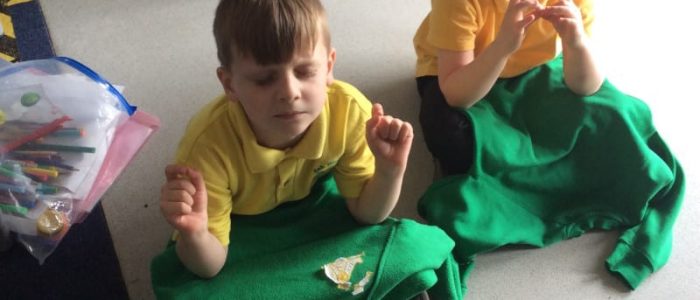
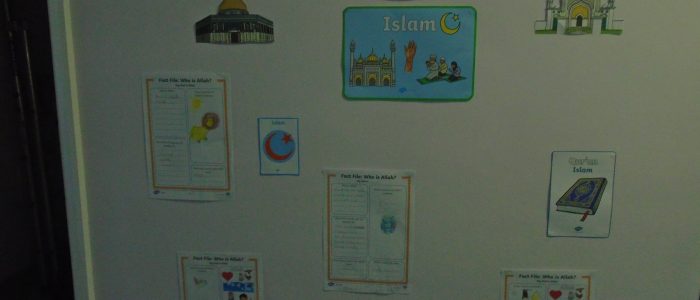
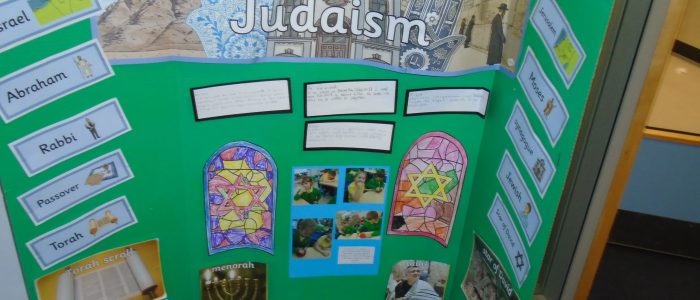
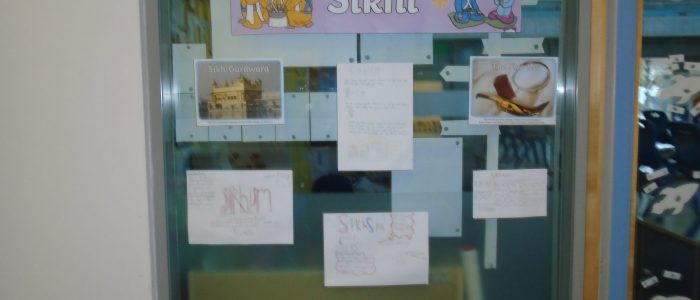
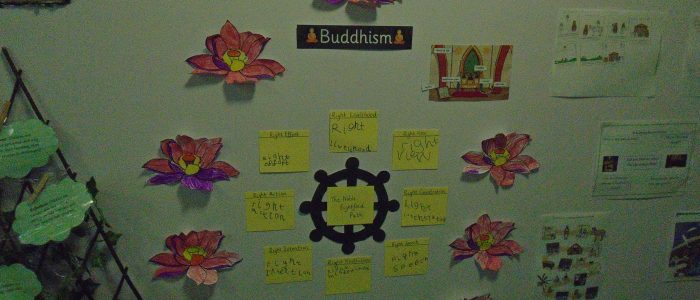
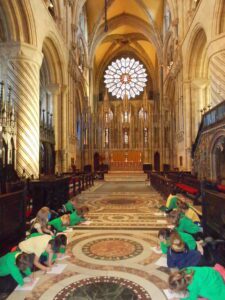
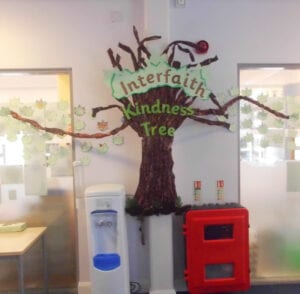
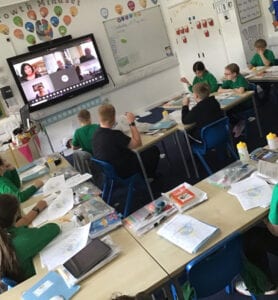
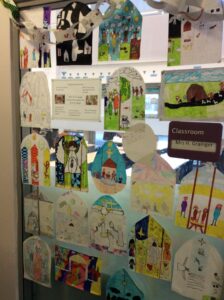
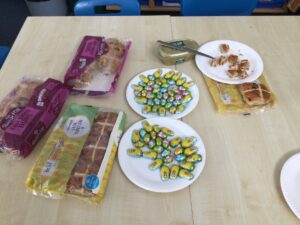
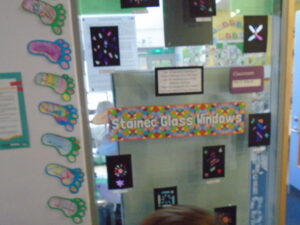
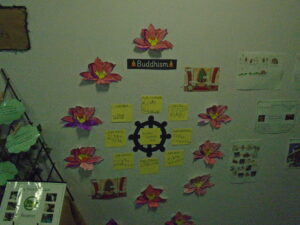
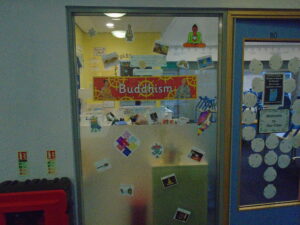
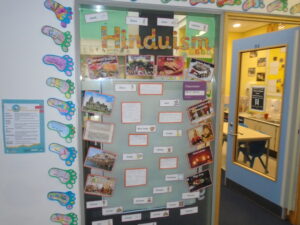
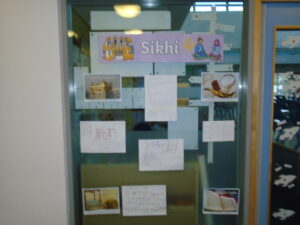
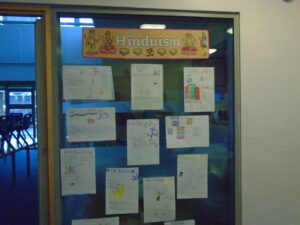
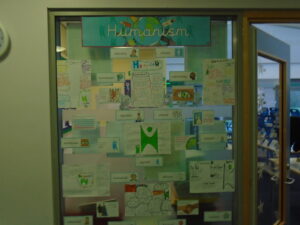
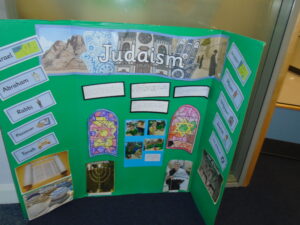
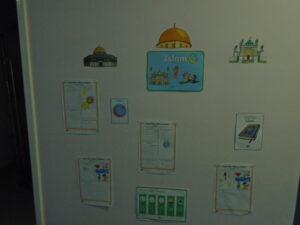



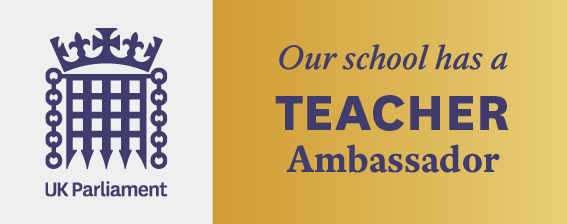
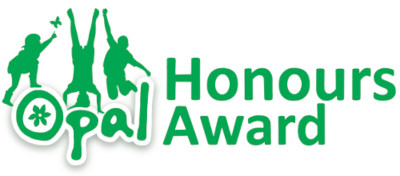



![Music-Mark-logo-school-right-[RGB]](https://eshwinning.durham.sch.uk/wp-content/uploads/2021/05/Music-Mark-logo-school-right-RGB-1.png)
